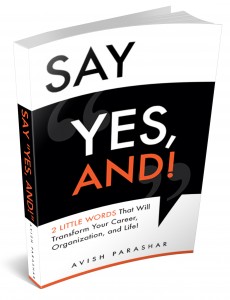No Singles?
Contrary to what you may believe from the title of this post, this is not an article about the discrimination faced by those of us not in a relationship (we’ll talk about that at a later date…) Rather, this is a post about what a large impact small choices can have.
This morning I stopped by the local Wawa to get a coffee and a bit to eat. (For those of you not from the South eastern Pennsylvania area, Wawa is not some bizarre childcare center, but rather an awesome convenience store). The total came to $3.23. I pull out a $10 bill and hand it to the woman behind the counter.
She looks at it and says, “no singles?”
Simple question, right? But it took me aback for a moment. Why? Quite simply because she didn’t fully form the question, “do you have any singles?”
To me, the wording and the way she said, “no singles?” implied that I should have pulled out my singles. Rather than coming across as a polite request to help them out with loose bills, it made me feel a smidge guilty for not paying with smaller bills in the first place.
I had a few singles in my wallet (let’s keep the snide comments about why I had singles in my wallet to yourself) so I pulled four out and paid.
What made the whole bit bother me a bit more was that she never thanked me for paying with the singles. Not when I said, “sure, I can pay with singles,” and not when I handed her the $4. The lack of a simple thank you reinforced the whole “I was wrong for not using the smaller bills in the first place,” feeling.
What’s funny about this is that I stop at this Wawa frequently, and this woman is usually very nice and polite. Maybe she was having a bad day. Maybe it was a slip of the tongue. Maybe I was the tenth person in a row to try to pay with a large bill and she had had it. I don’t know, and I probably never will know.
What I do know is that simple choice of words, asking “no singles?” rather than, “do you have any singles?” negatively impacted my experience. Because of my past experience at this Wawa and because of the utter convenience of the location, this will not stop me from going back. But what if it was my first experience? What if the place was even just a bit out of the way?
The simple choices we make everyday, in business and our personal lives, can have a huge impact on the people around us, even if we don’t know it. This is one of the reasons I talk so much about conditioning your automatic responses to be as positive as you can. If your default is a polite, well communicated response, then you will fall back on that even when things aren’t going well.
Let me ask you: Do you conduct your day to day interactions in a way that make people feel good and want more, or in a way that drives them away or makes them uncomfortable working with you? A few simple word choices can make all the difference…
About
By Avish Parashar. As the world's only Motivational Improviser, Avish uses techniques from the world of improv comedy to engage, entertain, and educate audiences on ideas around change, creativity, and motivation. Connect with Avish on Google+
 RSS
RSS Email
Email


 Facebook
Facebook Twitter
Twitter LinkedIn
LinkedIn YouTube
YouTube
I’ve been on the other side of this transaction. The problem with a polite “do you have anything smaller?” is that some jackass always tries to count out $3.23 in pocket change.
Fair enough, Jeff. Then how about a polite, “do you have any singles?” It wasn’t the exact wording that bothered me as much as the lack of courtesy behind it, intentional or not.
I agree with you. You are now susceptible to another store. Before this transaction you thought she was your friend. Now, you know she’s not. It won’t matter if you move on.
And, I agree with you–this story isn’t about her, it’s about what we might be mindlessly doing to create an opportunity where customers who we thing are loyal will feel released to look at their options.
Thanks for sharing.
W!